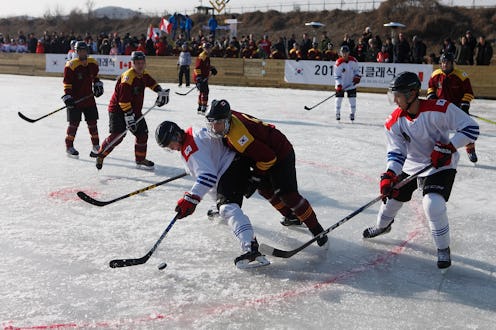Life
Here’s How Olympic Athletes Spend Their Days Off When They’re Not Training

This February, as you watch dozens of world-class athletes perform feats that make you sore just watching them, you may wonder what Olympians do in their spare time. Training for the Olympics requires years of intense training, not to mention absurd focus and ambition, but the athletes aren't totally defined by going for gold. The games only take place once every four years, and the International Olympic Committee (IOC) pays competitors precisely zero dollars for participating. Unless they're wildly famous, they probably have a day job waiting once the closing ceremonies are over — and besides, even professional athletes have lives outside their chosen sports.
But what do those lives entail? When athletes aren't actively training, they're often still doing things related to their sport. Their diets are usually carefully regulated, and most try to stick to a regular sleep schedule, snoozing at least eight hours a night. It may not come as a surprise, then, that many athletes fill their free time with physical activities. (Maybe they're confusing cross-training for a hobby?) Swimmer Michael Phelps, Alpine skier Lindsey Vonn, and women's hockey caption Meghan Duggan have all said they enjoy golf in their spare time. American triathlete Greg Billington, who represented the United States at the Rio games in 2016, likes ballroom dancing.
"I believe dancing promotes the hip suppleness necessary to maintain stride length and the footwork improves the ground contact time of my run," he told the Team USA website. "Most importantly, watching great dancers inspires moves for my victory celebrations."
Sometimes, though, their hobbies might surprise you. Three-time gold medalist Gabby Douglas told Us magazine that she likes to knit, although she's "not very good at it yet."
There are some other less common hobbies Olympians fill their time with, too: For instance, snowboarder, Kelly Clark, makes furniture; and, in 2014, retired speedskater Apolo Ohno completed an Iron Man triathlon.
As a whole, Olympians may not have as much free time as you might imagine. On top of grueling hours spent at the gym, most have to work to pay the bills. Although individual countries may compensate their athletes — the United States Olympic Committee pays medal bonuses up to $25,000 — being an Olympian doesn't pay as well as you would think. In 2016, for example, javelin thrower Cyrus Hostelter told the Washington Post that the most he has ever earned in a year is $3,000. "Athletes, without government support, are instead forced to cobble together an income made up of prize money, apparel contracts, grants and part-time work," CNN reported in 2012.
Chances are that outside of training for the games, some Olympians are working stiffs just like you and me. Triathlete Gwen Jorgensen works as an accountant; Norwegian rower Olaf Tufte is a fireman and a farmer. According to Business Insider, when he's not out in his kayak, Miguel Antonio Correa is a chef. American rower Elliot Hovey was a substitute teacher for elementary schools when he qualified for the 2012 Olympics in London.
Then again, some of their day jobs are less than ordinary. Race Imboden made his name as a Brooklyn DJ before taking home a bronze medal for fencing in Rio, and he works as a fashion model for brands like J. Crew and Banana Republic. To be fair, though, with a name like that, that kid was bound to end up an internationally famous DJ-fencer-model. What else would you expect?
All told, the lifestyle of an Olympic athlete varies drastically depending on their sport, and so do their hobbies. Now make like an Olympian and get back to your day job.